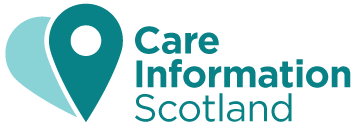
Tens of thousands of Scots in their 50s, 60s and 70s have taken on a caring role – but they don’t have to cope on their own.
To anyone on the outside looking in, it would probably have been obvious that Sue Northrop was juggling a role as her parents’ carer.
Thanks to her support, they had been able to live independently at home for as long as possible.
But like many who suddenly find themselves looking after loved ones, Sue didn’t initially realise the role she had taken on made her one of Scotland’s growing secret army of carers.
“It took me ages before I knew I was a carer,” Sue explains. “I had to leave my job at the time as I was struggling to keep all the plates spinning, they crashed and so did I.”
Sue (59), from North Berwick in East Lothian, is among a rising number of people in their 50s, 60s and 70s caring for elderly parents and relatives. Many are just like she was, quietly looking after loved ones while dealing with their own busy lives and not realising there’s a wide range of support that could make their lives so much easier.
It’s a growing issue: around 780,000 Scots juggle paid work with unpaid caring, but due to an ageing and growing population, that number is set to rise by nearly half as much by 2037.
A survey for Carers Scotland suggests 54 per cent of carers take over a year to recognise their role. As a result, 91 per cent said they missed out on essential support and 42 per cent like Sue, ended up giving up their job.
Yet vital help is just a click away. The Care Information Scotland website is run by NHS 24 and provides a one-stop shop for carers, with pages of advice, links to support organisations like Carers Trust Scotland and Age Scotland and guidelines on how to access benefits and respite care services.

For people who are new carers, there’s a special section offering advice on where to start. And the website includes tips and advice for carers on how to find balance in their lives so they can relax, advice on benefits and financial matters, plus details of their legal rights.
There’s information for all kinds of carers, from young people caring for parents or siblings while juggling studying, to older carers who often have health problems of their own.
The website’s ‘Info for Me’ tool lets users save pages and create a personalised document with information and advice that’s right for them.
And when they need to chat to someone, there’s also a seven days a week phone line on 0800 011 3200.
As the pressure soared, Sue called and received instant help. “Right from the start, I needed advice even if I didn’t know it,” she says.
“People make better choices when they’re better informed. I’d definitely recommend the website if you’re a carer, but also if you’re friends or family (of a carer), and want to point us in the right direction.”
Sue still cares for her mum Mary, who is now in her late 80s and in a care home. But she has achieved new balance in her life. “I lost sight of being a daughter,” she recalls. “I’m just as important to mum as a daughter as a carer.
“Caring means your relationship changes a lot, but at the heart of it, it’s all about love.”
Visit the Care in Scotland website today. Advice from Care Information Scotland is also available via telephone, seven days a week from on 0800 011 3200.

Enjoy the convenience of having The Sunday Post delivered as a digital ePaper straight to your smartphone, tablet or computer.
Subscribe for only £5.49 a month and enjoy all the benefits of the printed paper as a digital replica.
Subscribe